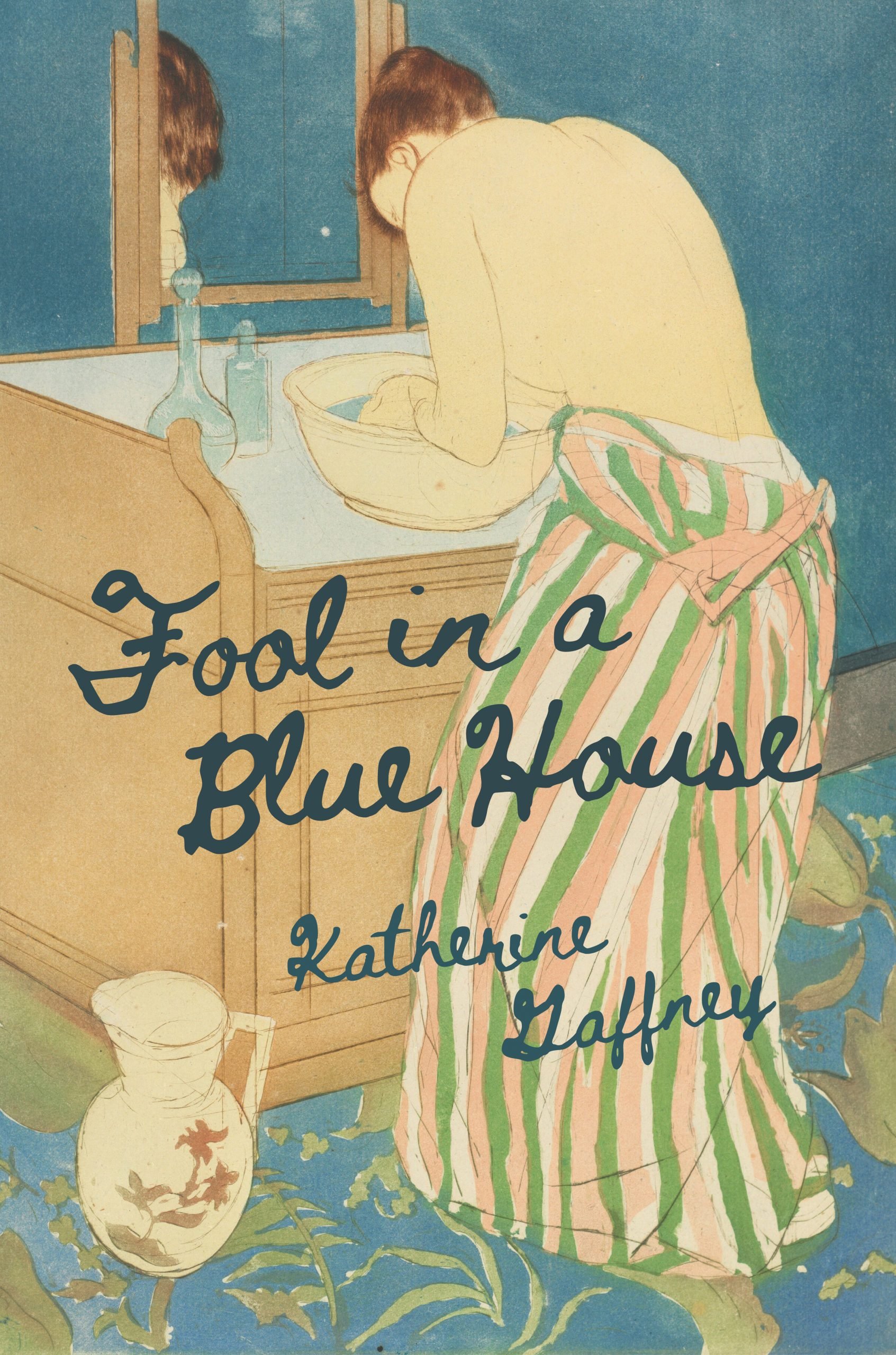Fool in a Blue House
Fool in a Blue House crafts carefully appointed rooms, both interior and exterior, alongside familial and romantic love, loss and near loss of beloveds, selves, and even neighborhood rabbits. Dwelling in contradictions—strength and fragility, humor and heartbreak, safety and threat—this book ponders impossibilities as solutions to its own predicaments, “Perhaps it would be easier to write in a chorus.” But these poems know that this is not the cure. These impossibilities are simply “a whole herring” dropped down a throat, a momentary pause before we dare “to defy what the sky tells us” and instead begin to tell “ourselves that we can will the sky to give.”
Once Read as Ruin
In Once Read as Ruin, Katherine Gaffney brilliantly weds the apocalyptic and domestic. Thrumming with an electric pulse, these poems tap the latent energies—the longing, the fury, the wildness—wired beneath the surface of the everyday. Here, mutilated bodies and rotting beds figure a kind of domestic death-drive through which Gaffney’s speaker—impossibly, profoundly—seeks a radical aliveness. Channeling Plath, but never reducible to imitation or stereotype, Gaffney limns interior cartographies wonderfully vital in their complexity, at once intimate and feral, animate and arrested. “I’d rather / bleed forever,” Gaffney writes, “sign / my life away with / a needle, sewn shut / without possibility / for undoing.” It is a haunting image, and one which testifies to the lush austerity—and the maturity and command and care—of a voice which will continue to resound in American poetry. Once Read as Ruin is a powerful first flexing of that voice.
–Christopher Kempf, author of What Though the Field Be Lost
Katherine Gaffney’s Once Read as Ruin is a study of boundaries—of gender and romance, of human and animal, of land and sea. Here, speakers long for control, curation, and companionship before dramatic reinventions and redefinitions reveal the thrill of wildness, the realization that emptiness and solitude can be understood “as addition,” as joyful defiance. With a seasoned, savvy wit that never sacrifices sincerity or gravitas, these poems present a sophisticated, self-aware, inspired poet. One who can merge the lushness of chicory and moonflowers with the banality of shrimp tails and used tissues. One who veers from the “should” of clearly marked domestic, romantic paths to find “a shield against the fable… of sleep and sex and weakness”—to forge a new, roaring course.
- Corey Van Landingham, author of Love Letter to Who Owns The Heavens
If you read this brief book, you will learn of “velvet summer mud” and several lacerations. You will learn that “there is a hole in almost everything useful.” You will see how “a horse born from a carousel” takes easy possession. You will hear April and water. You will pitch with the energy of perfect words and swallow snow “as if the snow never existed.” With Katherine Gaffney’s poems, these will be your gains, and they will stay beside you.
- Angela Ball, author of Talking Pillow
Books
Katherine Gaffney’s Fool in a Blue House swings with honesty between the ideal life imagined in a model kitchen and the more true place where we find ourselves. Dwelling in the space where these two worlds intersect, Gaffney’s poems masterfully capture “a life /of waiting and counting” though they ultimately arrive at an assertion that the perfect room we seek is most likely within ourselves. Strawberries planted in the yard promise possibility, and each of these carefully crafted poems somehow bloom simultaneously with truth, sadness, and joy. Gaffney’s poems capture life as it is and not as how we think it should be.
–Adam Clay, author of To Make Room for Sea
“I am bred to want.” Fool in a Blue House incites the crises of womanhood—what being woman means amid history’s exhibitions to pock holes to keep women incomplete—where characters elicit mutilation to avoid the violence of men, domesticity emerges as acts of rebellion, and the bond between human and more-than-human world becomes kaleidoscopic lenses to interpret the obscurities of evolving loves. Grappling with a mother’s heart attack and pushing back against damaging heteronormative gender roles, Gaffney interrogates the heart etymologically, figuratively, literally, and in all the complex crevasses etched between.
–Felicia Zamora, author of I Always Carry My Bones
Katherine Gaffney’s Fool in a Blue House teaches me how to love the holes in the barn, how to treasure the broken object, how to salvage what is left of a relationship. It teaches me that love can survive a Longhorn Steakhouse and that “ruin . . . is not ruin at all, but reinvention.” I love these poems, not only for the Gaffney’s deft language-play and clever insights, but also for the ways in which—despite the violence of humanity, the fragility of our bodies, the brokenness of our relationships—her speaker insists on humor, on tenderness, on hope and renewal. I know I’ll return to these poems again and again.
–Marianne Chan, author of All Heathens
With virtuosity and grace, these poems sound the whole range of human emotion, from big orchestral life stuff to the subtler rhythms of our closest relationships. “A part of me bloomed secretly,” Gaffney writes, weaving between interior and exterior landscapes to honor the solitude that grows even—or especially—in the company of others. Fool in a Blue House is a shimmering, open-hearted book.

